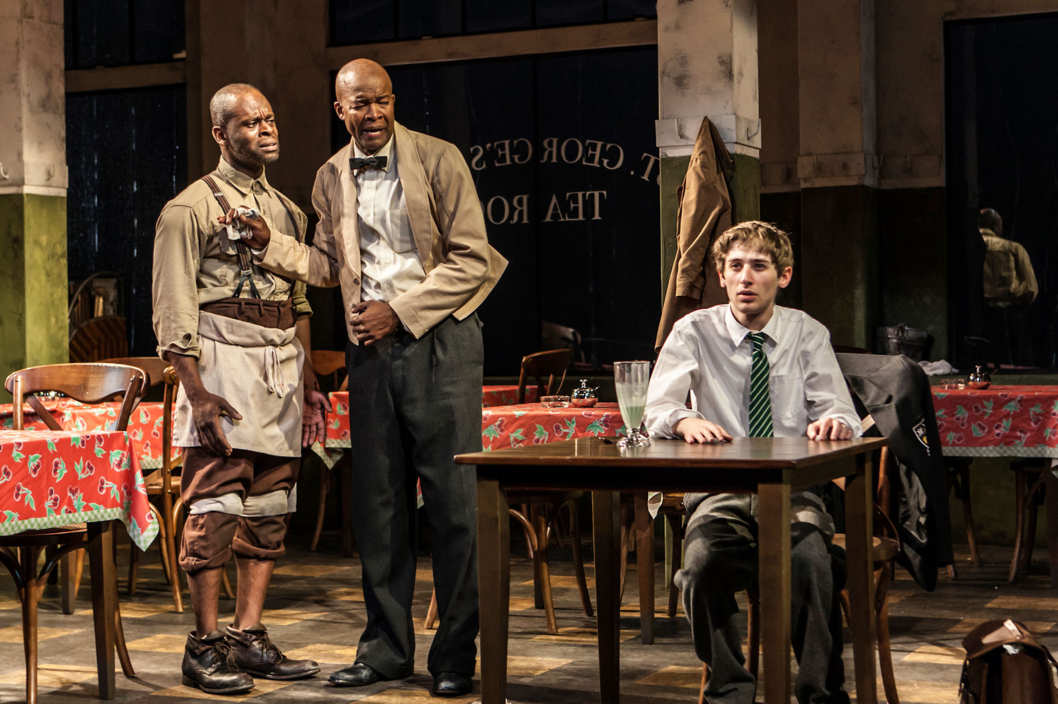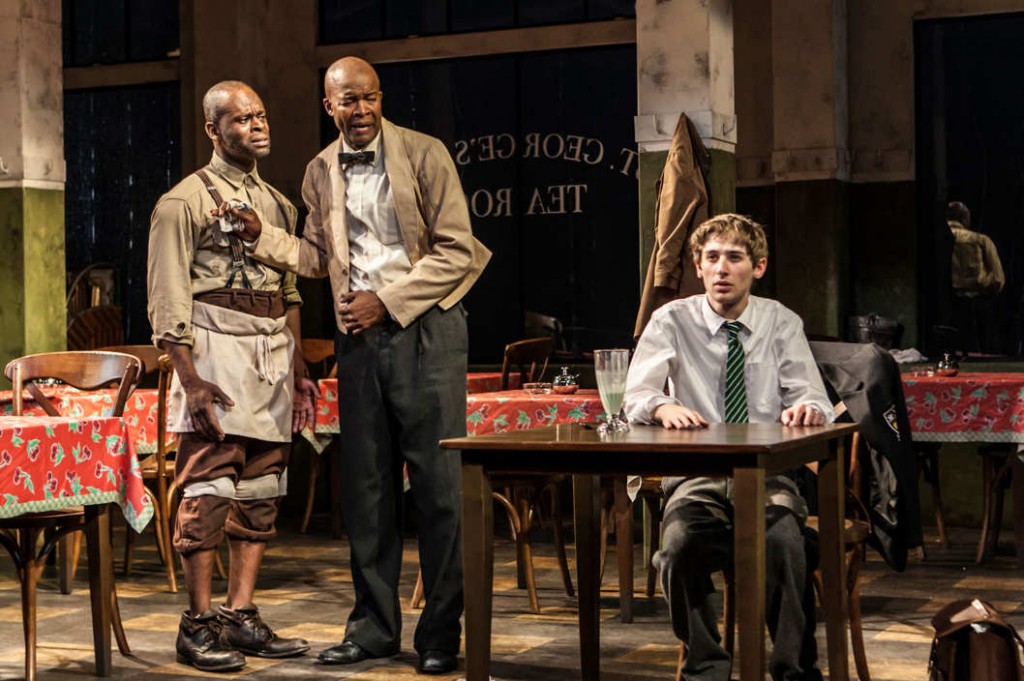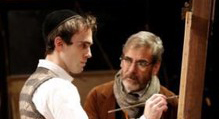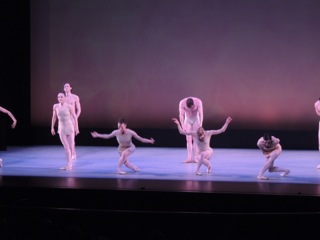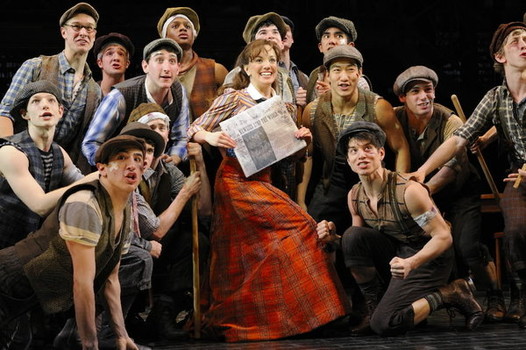By Martha Wade Steketee
The slightly run down tea shop setting in the current Signature revival of Athol Fugard’s “Master Harold” … and the boys — directed by the playwright and designed by Christopher H. Barreca (set), Susan Hilferty (costume), Stephen Strawbridge (lights), and John Gromada (sound) — feels friendly but there’s violence at the edges from the first lines of dialogue.
During an afternoon lull in trade, two black staff members, a talkative waiter Sam (Leon Addison Brown) and his floor mopping pal Willie (Sahr Ngaujah), demonstrate the fine points of dance floor steps, set tables, mop the well-warn linoleum, and discuss keeping a girlfriend in line with “a hiding.” We peek into a 1950 South African men-will-be-men world where discussions of domestic violence didn’t raise eyebrows, but the details accumulate in Sam’s storytelling: beating a girlfriend, a hospitalization, a caning by a magistrate.
We’re set up to expect danger from one direction (will we meet the absent girlfriend?), but it comes in an entirely different form as white oppression and an almost physically powerless teenaged boy. The callow Afrikaner Hally (Noah Robbins) parks his bicycle outside in the afternoon rain and enters dragging his bookbag. We learn that he’s not a conventional customer but that the shop belongs to his parents, and that this is a familiar respite. Hally mirrors the demeanor of secondary school age children the world over returning home after a long day at the books: post school and prior to his evening meal, he seeks chats children need from caretakers as they unwind. Sam particularly dotes on him: is he hungry, what’s bothering him?
We learn life is stressful at home for Hally with an ailing mom and a dad who is a drunk. The men comfort and assuage him with each revelation of pain and embarrassment at dad’s alcoholism. Sam recalls an incident with a kite when Hally was younger. When the subject gets too intimate, when the youth feels his role in the dominant class despite the great age difference among the characters is threatened, a coded racial divide dominates the conversation that sidesteps into an entirely different key.
Playwright Athol Fugard directs and conducts the breathtaking hairpin turns in the dialogue rhythms that lull us into revelations of internalized socialized roles, routines, and expectations in apartheid South Africa. No one is harmed physically, but a country’s class and race roles ache psychically. And the plays feels devastatingly current and resonant in today’s America.
Robbins deftly embodies his Hally with insecurity and resolution in unequal balance, evoking the earnest ballast of his performance in The Twenty-Seventh Man at the Public Theater a few seasons ago. When the family familiar “Hally” becomes “Master Harold,” you cry a little. Brown’s Sam runs the shop and in his own way runs the life of young Hally – the loss of his loving presence as a caretaking familiar to young class-bound “Master Harold” is potent. And Ngaujah’s Willie is solid and completes this intimate, slow burn of a masterwork. Characters with full and layered lives change in a dramatic instant into social stereotypes, the race and class tensions simmer through civility, and we feel their loneliness and their loss.
“Master Harold” … and the boys. Through December 11 at the Signature Center (480 W 42nd Street). Running time 100 minutes with no intermission. www.signaturetheatre.org
Photo: Monique Carboni


